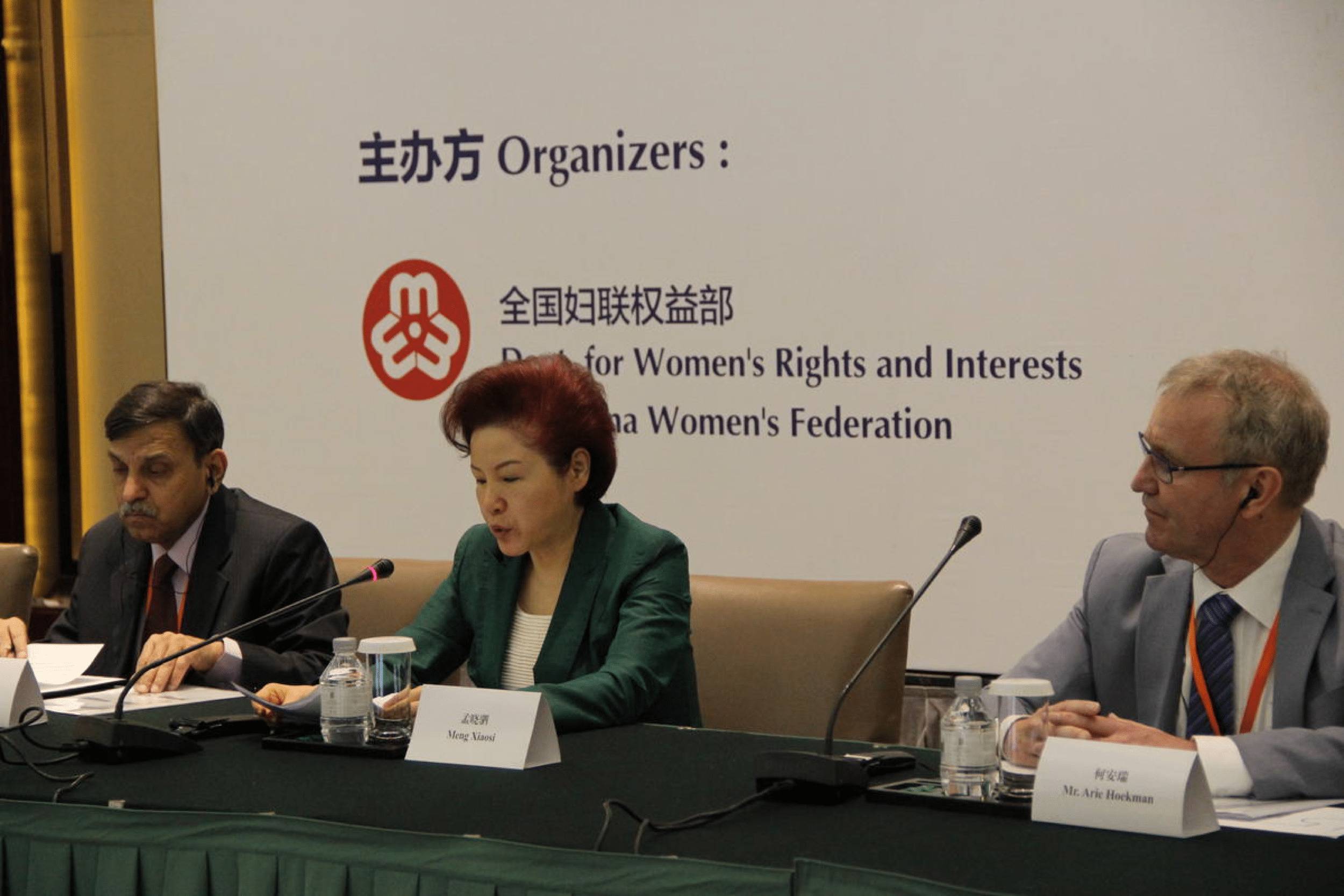Beijing, 11 April 2014 – National and international experts gathered in Beijing to share perspectives and knowledge on the Family Violence Legislationat a two-day roundtable event hosted by the ACWF and UN System in China. This event capitalizes on themomentum created by the inclusion of the Family Violence (FV) Legislation in the National People's Congress's legislative agenda, a result of many years of advocacy by ACWF, line ministries and civil society organizations in China.
The event, which began on Thursday, 10 April, featured contributions from around 100 participants, including national and international legal experts as well as representatives from national, international and civil society organizations. The focus of the Roundtable was the sharing of best practices and challenges from different parts of the world, with the aim of informing China's national experts responsible for drafting the national family violence law for the country. Currently, 125 countries around the world have legislation that criminalizes family violence.
The International Roundtable ontheFamily Violence Legislationin China was held at a critical stagein the legislative process, and provided the international community with the opportunity to share experiences, promote knowledge exchange,and disseminate ideas to inform China’s domestic policy formation. Experts discussed how various national laws prevent family violence, provide protection and assistance to survivors, and punish and rehabilitate perpetrators, as well as highlight the different practices countries have adopted to ensure the respect, protection and fulfillment of the rights of survivors of family violence in national court proceedings and the ensuing rehabilitation and integration services.
Mme. Meng Xiaosi, the Vice-President and Member of the Secretariat of ACWF, said at the Roundtable that there is a new opportunity for Family Violence Legislation in China since the18th National Congress of CPC agreed to promote "equality between men and women as a basic national policy, and protection of the rights and interests of women and children". She called for all stakeholders to join hands and work together to formulate this legislation to better prevent and respond to family violence in China.
Mr. Abhimanyu Singh, the Chair of the UN Theme Group on Gender stated that "a new law would facilitate harmonization with China's Constitution and other provincial laws, including the criminal code; better prevention measures based on international standards; stronger and more accountable protection provisions for all vulnerable people; and more robust and enforceable prosecution of violence. A new law will enhance the rights of women, children, the elderly, and people with disabilities within the Chinese family based on agreed universal principles and rights." Prior to organizing the International Roundtable, the UN Task Force published in 2013 four separate opinion pieces in major Chinese media to raise public awareness on violence against women, children, elderly, and persons with disabilities.
The event was supported by UN Women, UNICEF, UNESCO, UNFPA, ILO, UNDP, WHO, the American Bar Association (ABA), the Australian Human Rights Commission, and the Embassies of Australia, Finland, New Zealand, Austria, and Spain with support made by ACWF inviting all national experts and line ministries to the Roundtable.


